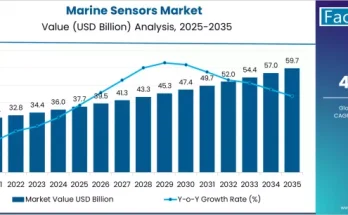The global automotive powertrain market holds around 21% market share in the total market valuation of global car and automobile industry. It is projected to grow at the CAGR of 3.4% amid the assessment period of 2022 &2032.
Historically, the automotive powertrain market witnessed a growth of around 3.2% CAGR throughout 2017 and 2021. The market for automotive powertrain has generated an absolute $ opportunity of nearly USD 65.17 Million in the previous five years. It is expected to offer an absolute dollar opportunity of USD 117.6 Million and USD 283.9 Million in medium term (2022 & 2027) and long-term (2022 & 2032) individually.
Rising Automotive Production Continues to Support Sales of Powertrain
The global sales of automotive have remained favorable for the industry in recent years, with China and the United States topping the list both in terms of production and sales. As the U.S. economy steadily recovers, automotive industry in the country embraces an acceleration, particularly in the auto components vertical. Meanwhile, China prepares to enter a maturity phase with a higher sensitivity towards macroeconomic implications.
The emerging markets, including Brazil, India and Mexico are also coming under the spot light. Demand for commercial vehicles and passenger vehicles has grown significantly in these countries. In 2016, Toyota, Volkswagen, HYUNDAI, G.M., and Ford ranked among the top five manufacturers. Rising automotive production remains a major driver for the global automotive powertrain market.
Greater Efforts to Develop Clean Technology Remains a Major Industry Trend
The automotive industry has increased its efforts to adhere to an integrated approach that advocates the use of clean technology to reduce carbon emission. OEMs are actively focusing on development of more efficient engines, drive-trains, transmission and drive-shafts to reduce fuel consumption.
In fact, some manufacturers have already introduced sophisticated emissions-control technologies that are being used in next-gent automobiles. Moreover, global initiatives, such as the Paris climate accord have prompted various countries across the globe to enact stricter emission laws on new vehicles.
Therefore, the auto industry is beginning to show a greater interest in electric mobility space. Over the next decade, more number of people are likely to opt for vehicle models that have minimum or zero emission burdens.


